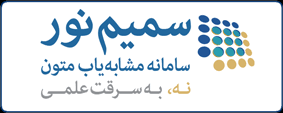The Compassion-Centered Model and Its Constructive Role in the Formation of a Healthy Society in the Light of
DOI:
https://doi.org/10.61438/bsrqj.v2i1.50Keywords:
Model, compassion, creator, prophetic tradition, communityAbstract
Compassion is kindness rooted in appreciation of other human beings as real human beings. Research has been done on these important and constructive educational models of kindness and their constructive role in the formation of a healthy society in the light of the Prophet's way of life. Kindness is one of the important issues. In the field of community education, we can mention skills and characteristics that play a significant role in individual and social relationships based on kindness and attention to people's needs and problems and creating solidarity and responsibility of community members. Although the role of kindness as an educational model in the society has been neglected in the present era, the Quran and hadiths have mentioned it as a source of guidance and human education. This research investigates the concept of compassion and its educational effects from the perspective of the prophetic tradition with a descriptive-analytical method in order to investigate the characteristics and skills of compassion and its educational effects in the fields of belief, emotion, emotional and moral, in individual and social axes, and the culture of compassion to grow in society and focus on it. The results of the research show that compassion is one of the effective and useful personal and social traits that causes the mutual influence of people on each other in the direction of a better life and healing of the soul and spirit. And still, compassion is a set of qualities and skills and has a concept more than kindness and compassion. If after discussion and investigation it can be said that compassion is a person's relationship with God and man himself and It places society and people on the basis of monotheistic belief, love, responsibility, sympathy and empathy. According to this compassion, it has several basic educational roles, including seeing God as present and watching in all stages of life, and seeing Him as the agent of receiving mercy and guidance; And also controlling emotions and feelings and managing human interactions with others and protecting and relieving humans from the pains and pains of others and being kind to them and creating a platform for creating mutual love and good interaction in the community and these are reasons for being human and Muslim. We should keep this religious and human duty alive in our minds so that we can have a society free from unkindness.
References
Quran
Al-Bukhari, M. b. I. (2001). Al-Jami’ al-Musnad al-Sahih al-Mukhtasar min Umuri Rasul Allah salla Allahu ‘alayhi wa sallam wa Sunanihi wa Ayyamihi = Sahih al-Bukhari. Beirut, Lebanon: Dar Tawq al-Najat.
Al-Harani, T. A. A. A. b. A. b. T. (1995). Majmu' al-Fatawa. (A. b. M. b. Qasim, Ed.). Madinah, Saudi Arabia: King Fahd Complex for the Printing of the Holy Quran.
Al-Humaydi, A. b. M. (2003). Fath al-Bari: Sharh Sahih al-Bukhari. (M. A. Shahin, Ed.). Beirut, Lebanon: Dar al-Kutub al-‘Ilmiyya.
Al-Naysaburi, M. b. A. H. (n.d.). Sahih Muslim. (M. F. ‘Abd al-Baqi, Ed.). Beirut, Lebanon: Dar Ihya’ al-Turath al-‘Arabi.
Al-Qur’an al-Karim.
Al-Raghib al-Isfahani, H. b. M. (1992). Mufradat Alfaz al-Qur’an. (S. A. Dawudi, Ed.). Beirut, Lebanon: Dar al-Shamiya.
Al-Saffuriyya, A. b. A. K. (2015). Muntaha al-Arab fi Lughat al-Arab. Sanai Library.
Al-Zuhayli, W. (1985). Al-Fiqh al-Islami wa Adillatuhu, 2nd ed. Damascus, Syria: Dar al-Fikr.
Ibn Dawud, S. b. A. (1999). Sunan Abi Dawud. Beirut, Lebanon: Dar al-Fikr.
Ibn Faris, A. (1999). Maqayis al-Lugha. (A. H. Harun, Ed.). Beirut, Lebanon: Dar al-Jil.
Ibn Hajar al-‘Asqalani, A. b. A. (2003). Fath al-Bari: Sharh Sahih al-Bukhari. (M. A. Shahin, Ed.). Beirut, Lebanon: Dar al-Kutub al-‘Ilmiyya.
Ibn Hibban, M. b. H. (n.d.). Sahih Ibn Hibban. (A. M. Shakir, Ed.). Egypt: Dar al-Ma'arif.
Ibn Majah, M. b. Y. al-Qazwini. (1988). Sunan Ibn Majah. (M. F. ‘Abd al-Baqi, Ed.). Dar Ihya’ al-Kutub al-‘Arabiyya.
Omar, A. M. (2008). Mu‘jam al-Lugha al-‘Arabiyya al-Mu‘asira. (n.p.): ‘Alam al-Kutub.
Sa'di, M. (2006). The Gulistan of Sa'di. (M. A. Foroughi, Ed.). Tehran, Iran: Hermes Publications.
Shabbir, A. (1999). Akhlaq, 4th ed. Qom, Iran: Hijrat.
Tafsir al-Nur, M. K. (2018). Tafsir al-Nur. Tehran, Iran: Ehsan Publications.
Various Scholars and Researchers. (1999). Al-Mawsu‘a al-‘Arabiyya al-‘Alamiyya. Encyclopedia Publishing and Distribution Institute.







